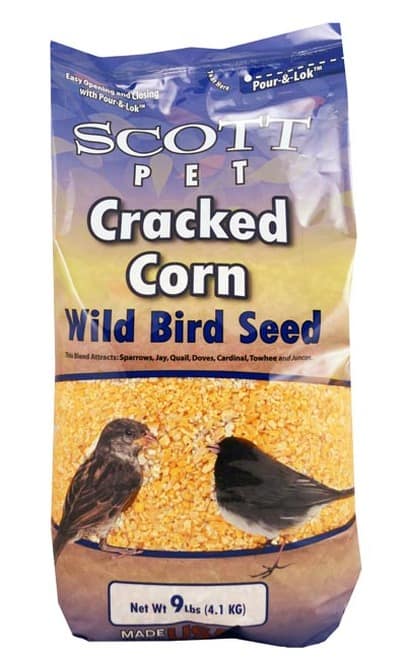
Wild bird feeding is an enjoyable hobby enjoyed by many consumers, providing hours of peaceful relaxation at home. When shopping for birdseed it is essential that it meets certain standards; pesticide-treated seeds should be avoided in favor of high quality ones.
Search for mixes containing more valuable seeds such as millet or sunflower. Also look out for mold or mildew symptoms and search the seed for empty hulls or debris that is inedible.
Contents
Birdwatchers Blend
This seed mix is designed to attract an assortment of small birds. Packed with high-energy seeds such as black oil sunflower seeds, peanuts and safflower seeds – to draw in feathered visitors! Also included is canary grass seed and nyjer seed which attract songbirds. Plus it’s triple cleaned so minimal cleanup! This mix offers great fun to backyard birds!
Selecting the ideal wild bird food depends on a bird’s nutritional requirements throughout the year, such as when molting occurs and fat is needed to help keep them warm in winter months.
Scotts’ acquisition of Global Harvest will not only provide high-quality products, but will also comply with FDA’s Food Safety Modernization Act – giving customers confidence that what they’re purchasing for use in their gardens and backyards is safe.
Songbird Suet
Songbird Suet is an energetic blend designed to attract vibrant, melodious wild birds into your yard. Containing 40% sunflower seeds (the most popular seed for bird feeders), plus peanuts, hulled corn and rendered beef suet for extra energy and nutrition; this suet mix attracts cardinals, chickadees, nuthatches and titmice!
While most wild birds will feed from any type of feeder, some species prefer specific foods or are more likely to visit certain feeders than others. A suet-filled feeder will attract woodpeckers such as downy and hairy; it may also draw insect-loving birds like black-capped chickadees, tufted titmice, Carolina wrens and red-breasted nuthatches.
Commercial suet comes in various shapes and sizes designed to accommodate various feeders. A popular suet cake can be hung in vinyl-coated wire cages designed to keep out starlings and squirrels ($10 at Home Depot); balls or nuggets may be hung from mesh polyester bags ($5 from Duncraft), where clinging birds take great delight in feasting upon it.
Lyric Wild Bird Seed
Wild bird feeding has long been a beloved pastime and now appears poised for even greater popularity as consumers spend more time at home and explore ways to attract wildlife. Selecting an appropriate seed mix is key for drawing in a diverse array of colorful birds to your feeder.
Choose a high energy blend containing plenty of sunflower seeds, peanuts and tree nuts as this will attract cardinals, blue jays and chickadees to your feeder. Plus it includes black oil sunflower seeds to provide extra energy during cold winter nights!
This mixture contains finely cut seeds with their hulls removed for easier consumption by smaller beaked songbirds. There are no fillers or waste products found here and it is 100% edible!
This high-energy seed provides a premium high-protein treat that’s ideal for finches, house and purple finches and pine siskins. Hang it in a special nyjer tube feeder to attract these small-beaked birds to your yard.
Scotts Birdbaths
Birds love water and drinking from it, while bathing is an effective way for them to rid themselves of bugs and debris that build up on their feathers. By adding a birdbath to your garden or yard, you could attract new species while creating an eye-catching focal point in the landscape.
Birdbaths that provide optimal conditions for birds include rough-rimmed models that offer perching areas while providing shallow enough waters for birds to wade into. Furthermore, air must circulate within the bath’s waters so as to keep stagnation at bay; heated bird baths may be used during winter if cats pose an issue in your neighborhood; otherwise they must be covered with an ice-resistant lid or cover altogether to remain cat proof.
Consider placing some native plant material near your birdbath that will provide shade and a safe haven if birds feel threatened by predators, such as black-eyed Susan (Rudbeckia hirta), butterfly milkweed (Asclepias tuberosa), blue phlox (Phlox divaricata), or common boneset (Eupatorium perfoliatum). Some birds may visit your backyard specifically looking for food and nesting materials; so include perennial plants suitable for eating such as swamp sunflower (Helianthus annuus) or purple American aster (Symphyotrichum patens), as these will attract pollinators species that will help benefit your garden by increasing pollinators populations.


